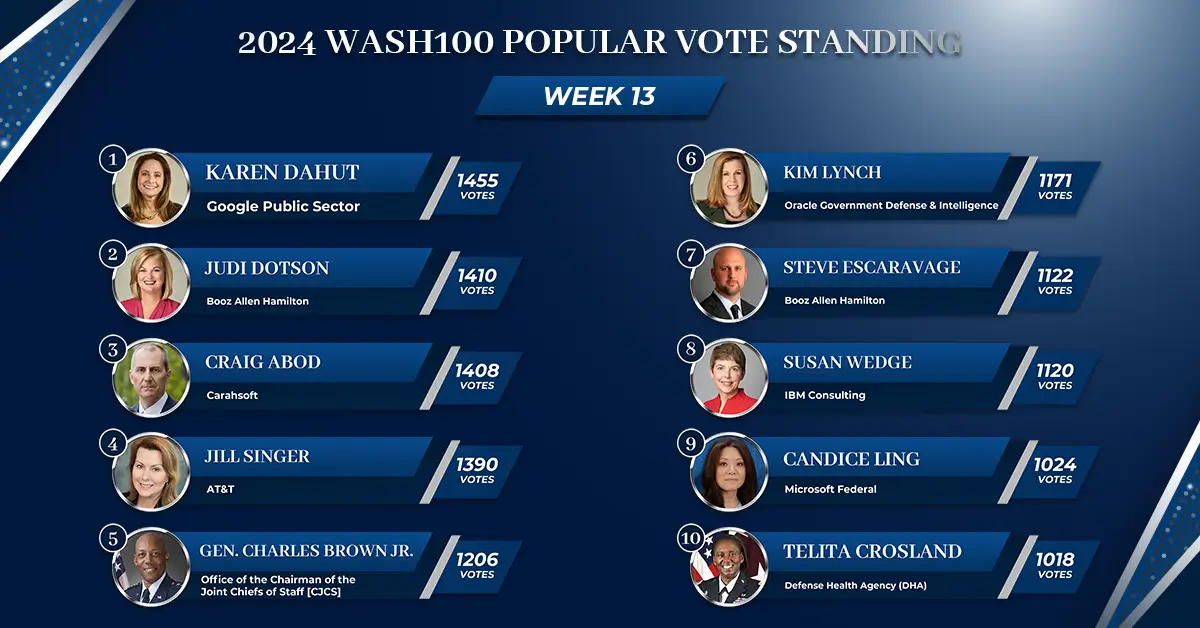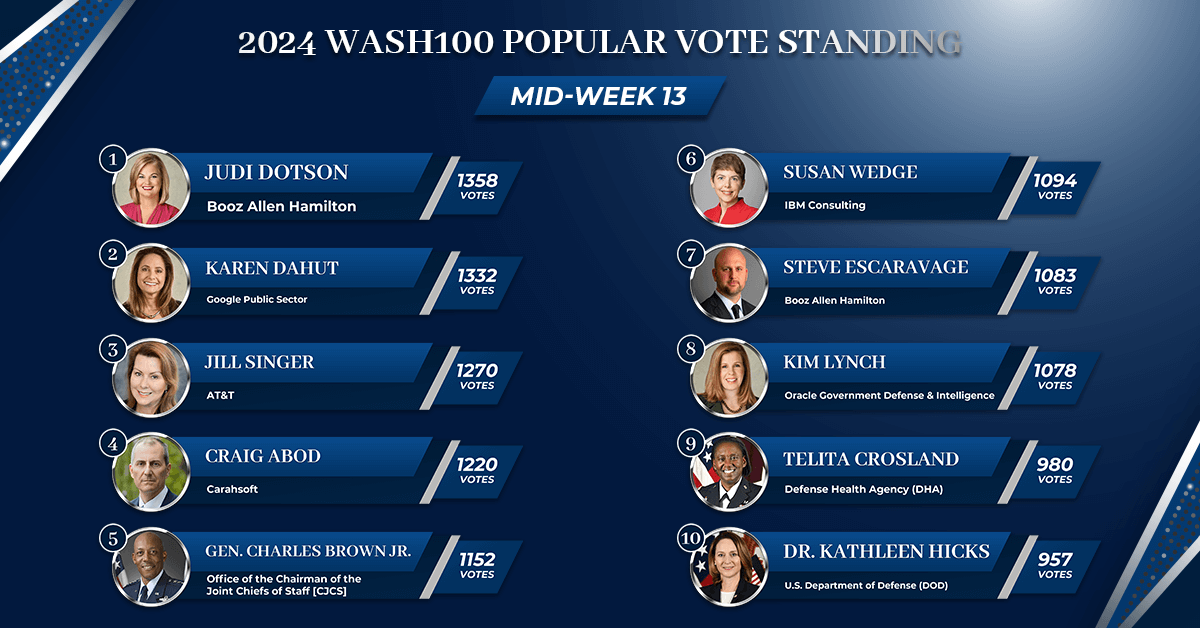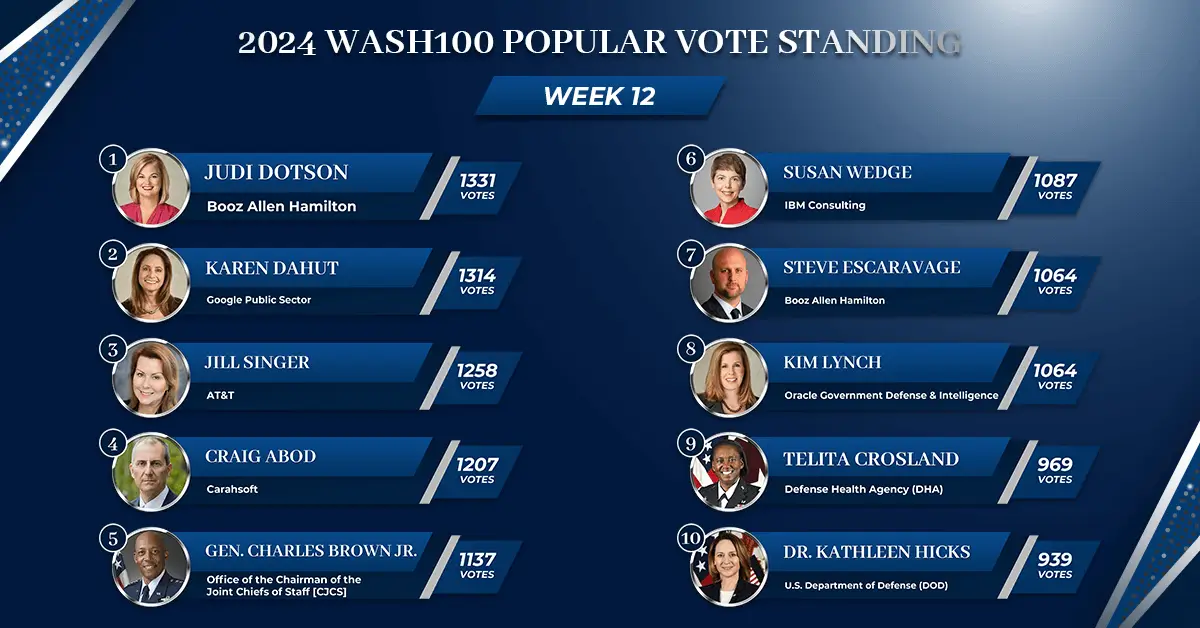Accenture Federal Services conducted a global survey, capturing insights from over 6,000 businesses and executives to identify the recent emerging industry-leading trends in the federal technology sector as a result of the unprecedented challenges caused by the COVID-19 pandemic as well the future implications for government agencies.
The abrupt onset of emergency lockdown restrictions last spring pushed executives to implement swift modernization initiatives, restructure their business models and revamp their technological infrastructures to support their increasingly remote customers and employee bases.
“The Accenture Federal Technology Vision offers a guidebook for capitalizing on the most important of these emerging trends at the mission scale federal agencies require,” said Kyle Michl, Accenture’s chief innovation officer.
CIO Kyle Michl and CTO Chris Copeland wrote the company’s Accenture Federal Technology Vision 2021 survey to identify five of the most significant trends that will be heavy influences for federal agencies as they work to harness and sustain this mindset shift to build a digital-first approach for the future in a post-pandemic world.
“The COVID-19 pandemic revealed new levels of agility across the federal government. The challenges for federal agencies going forth is institutionalizing many of these best practices,” Copeland added.
The survey’s findings were captured between December 2020 and January 2021 and resulted in the following five major technology trends and best practices that will continue to push evolution in the federal space.
Stack Strategically
2021 saw the drastic rise in implementation of cloud-based architecture to support company infrastructures through a period of rapid modernization. Agencies are increasingly turning their focus toward developing strategies that will weave new technology into their organization’s operations and missions.
Accenture’s survey found that 74 percent of U.S. federal executives agree that their technology architecture is becoming critical to the overall success of their agency, and 30 percent of that group report that it’s very critical.
This trend is reflected in the Department of Defense’s JADC2 concept, which aims to connect defense agency networks in one centralized platform for increased cohesiveness and quicker response times.
Mirrored World
Artificial intelligence is accelerating the implementation of “digital twins” as federal agencies innovate their enterprise management strategies. Digital twins can replicate individuals, processes and physical assets in a virtual environment as a model for how the objects might behave under an array of different circumstances. This tool uses machine learning to explore, analyze and prepare for outcomes federal leaders may not have envisioned otherwise.
The U.S. Air Force, Army, and Navy are already utilizing digital twins to improve weapons, streamline system maintenance and ensure mission readiness.
I, Technologist
As technology occupies a larger, more comprehensive role within federal agencies, employees across all departments have had to adapt and embrace new systems that democratize data and give more IT capabilities to non-coders.
Cloud-based and artificial intelligence-powered platforms allow federal employees to build their own applications and play a more active role in enterprise-wide collaboration. This Do-It-Yourself approach requires a broader level of technical literacy within federal agencies but will also enable increased agility and adaptability to evolving technological challenges.
Anywhere, Everywhere
Remote work environments have unsurprisingly become the new norm in response to last year’s pandemic shutdowns. In Accenture’s survey, federal agencies reported that remote work reduced overhead costs and even increased company productivity.
87 percent of federal executives believe a remote workforce can open up the market for difficult-to-find talent and expand competition for talent among organizations.
With more robust technology capabilities and accelerated modernization, Accenture predicts that federal agencies will embrace more full-time remote work alongside a hybrid model that allows employees to choose their work environments.
From Me to We
With multiparty systems growing more prominent in the federal space, agencies are looking towards blockchain technology and distributed ledger practices to foster transparent collaboration while maintaining security.
Accenture’s survey found that 91 percent of executives believe multiparty systems will enable their organizational ecosystems to be more resilient and adaptable.

Check out the Accenture Federal Technology Vision 2021 survey in its entirety from CTO Chris Copeland and CIO Kyle Michl that catalogs the invaluable lessons learned from the federal government’s response to the COVID-19 pandemic and drive for the digital-first approach in a post-pandemic world.







